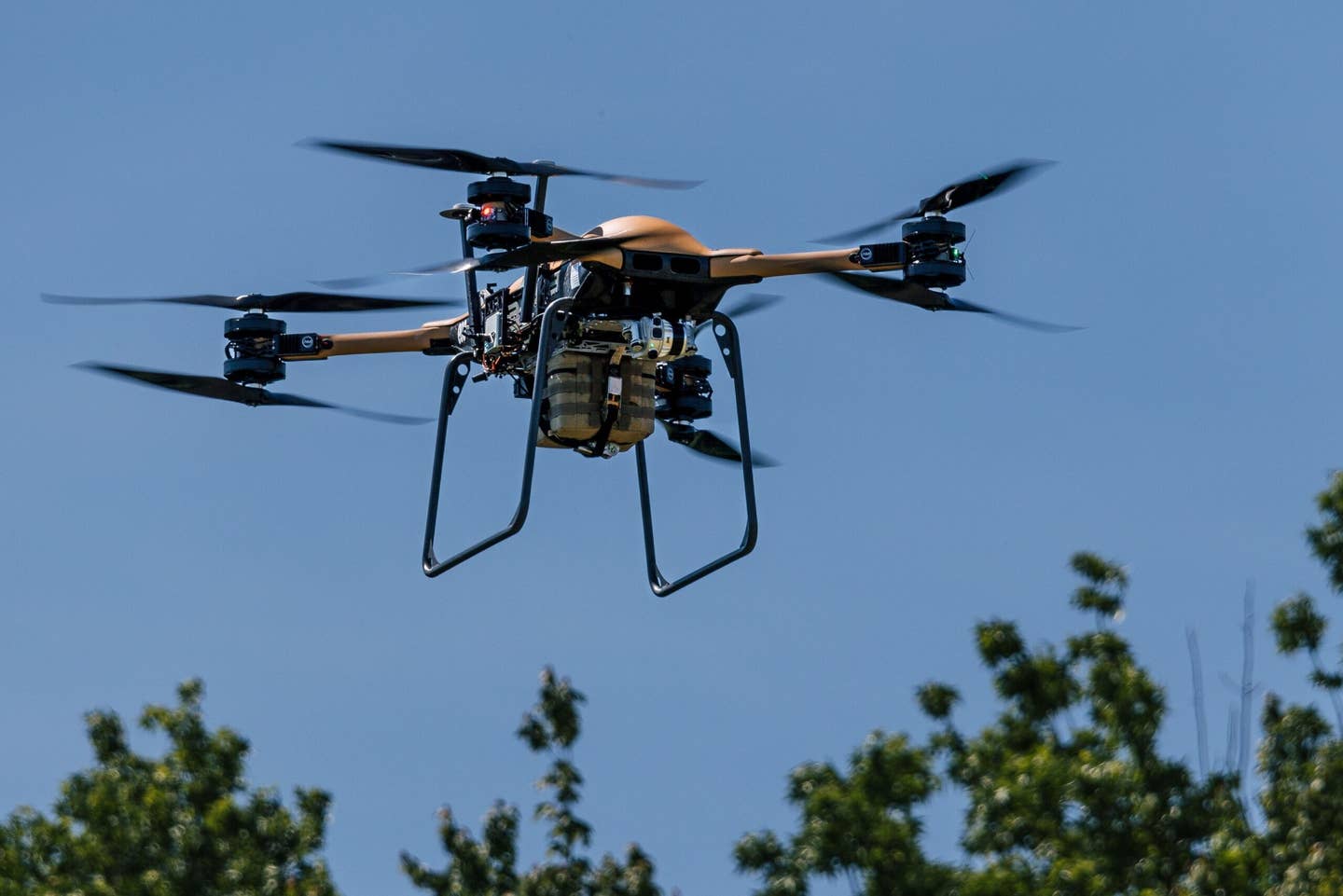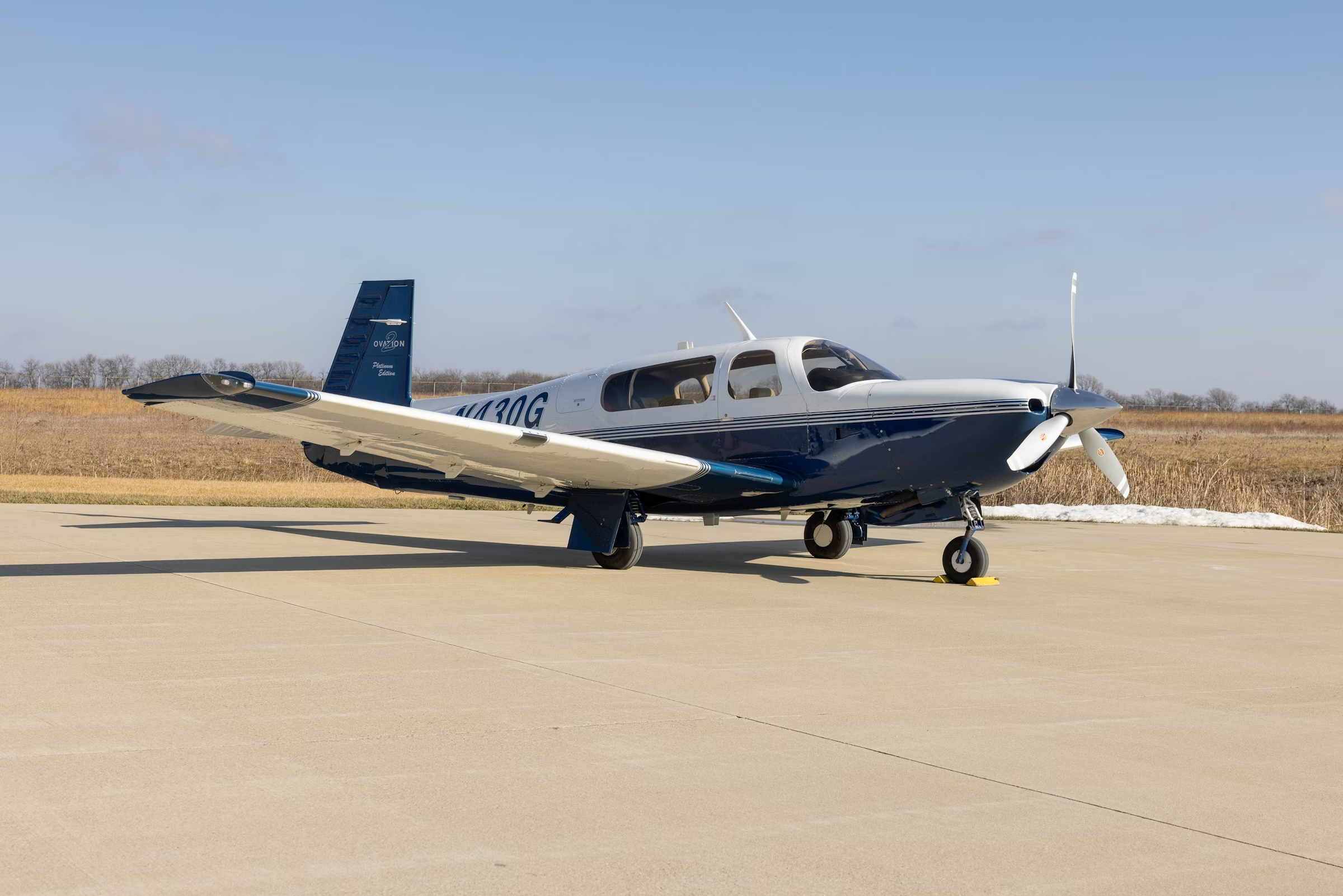Delta Air Lines and Wheels Up Partner to Expand Pilot Pipeline Program
Delta’s Propel College Path Program adds Part 135 operator to recruit business aviation pilots to the airlines.

The partnership between Delta and Wheels Up will allow pilots in the airline’s Propel College Path Program to log flight hours with the private aviation operator, giving them another path to full-time employment with Delta. [Courtesy: Wheels Up]
Delta Air Lines’ (NYSE: DAL) Propel College Path Program is adding a new partner as it looks to expand its talent pipeline to recruit more pilots. Wheels Up (NYSE: UP), the private, member-based aircraft operator, will become the first Part 135 partner to join the Propel program, giving its pilots a much easier path to full-time employment with Delta.
Capt. Ashish Naran, a former corporate pilot who is now a captain and lead pilot recruiter for Delta, said in a statement that the corporate-to-airline pathway would help pilot candidates improve their flying skills and build essential customer skills.
"The diverse flying operations and attentive customer service skills associated with Wheels Up's on-demand charter operation will instill a foundation for Propel candidates to have a successful career ahead at Delta," Capt. Naran said. "This partnership with Wheels Up will set that strong foundation for this next generation of Delta pilots."
Stevens Sainte-Rose, the chief people officer at Wheels Up, was also ecstatic about the link the partnership would create for pilots. Sainte-Rose called Delta a “preeminent brand” and described the carrier as an innovative recruiter of pilots. Delta was the first mainline carrier to launch a pathway program when it established its Propel Program in 2018 to increase its workforce. So far, more than a dozen pilots have completed the Propel pathway and are employed at Delta, the airline said in a statement.
Wheels Up Makes Strategic Moves To Support Its Workforce
Propel partners with colleges, the military, and Delta Connection carriers to make it easier for it to hire aspiring pilots. This new partnership with Wheels Up gives pilots who want to work in business aviation and at an airline the opportunity to do so.
"We believe that working together, we can provide meaningful and exciting assignments for pilots at every stage of their careers," Sainte-Rose said.
Aside from choosing flying jobs at regional carriers, pilots who want to explore a career in business aviation can opt to work for Part 135 operators, like Wheels Up, which also have similar hiring requirements as the regional airlines. It also gives companies, like Wheels Up, additional recruiting incentives for young-in-their-career pilots. Having a clear path to a major airline, like Delta, might encourage new pilots to choose business aviation over working for a regional airline.
Wheels Up operates a fleet consisting of King Air 350i, Citation Excel, and Citation X as part of a marketplace of over 1,500 private aircraft that it either owns, leases, or manages.
Wheels Up and Delta are also partnering on a program for retiring Delta line pilots looking for the next chapter in their aviation careers. According to FAA regulations, airline pilots must retire by age 65. Certain members of Congress have proposed raising the forced retirement age to 67 but push back from the largest pilot union, ALPA, seems to have squashed their efforts for now.
Meanwhile, there is no FAA-mandated retirement age for Part 135 operations, which means that retired airline pilots could extend their flying careers working for business aviation companies, like Wheels Up, as long as they have a current medical.
As for pilot retention, Wheels Up has deployed its AirCrew 360 program, a suite of benefits and perks for its pilots. On the company's fourth-quarter earnings call in March, Vinayak Hegde, the company's president, said Wheels Up had revised the program to be more competitive.
"Through this initiative, we revamp pilot compensation, including equity grants and industry first, as well as improved benefits, career progression plans, and lifestyle enhancements to our pilots," Hedge said.
That program has proven successful for the company so much that it has launched Maintenance 360 for its support teams. Hedge mentioned, as an aside, that the company plans to hire more than 100 technicians this year.
Delta's Ongoing Push for Pilots
Delta plans to hire and train more than 2,400 pilots this year alone, as it still grapples with replacing the pilots that took an early retirement deal offered by the airline at the beginning of the pandemic in 2020. On its earnings call last week, Delta's CEO Ed Bastian told investors that the airline overestimated how much it needed to downsize the workforce at the time. That move hurt the airline's ability to cope with the ongoing travel rebound.
Though Bastian said his airline didn't have a problem recruiting pilots, he projected that it could take until the latter part of 2027 for the airline to overcome its staffing issues. Moreover, analysts have projected that the U.S. airline industry will be short 26,000 pilots in 2030 but said Delta was in the best position of all the major airlines.

Sign-up for newsletters & special offers!
Get the latest FLYING stories & special offers delivered directly to your inbox






